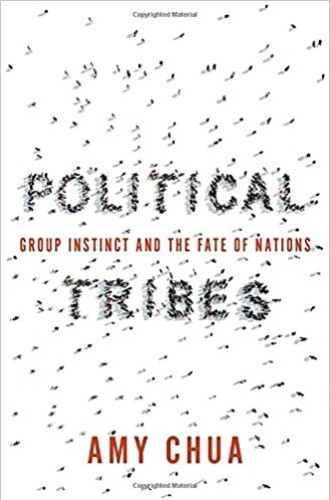Tribalism is natural. It's also destroying us.
Amy Chua considers why we cling to people who look and act like us.
America’s elites have long overlooked a basic fact of human nature: that humans are instinctively tribal. This oversight has led to more than half a century of foreign policy disasters, and it bodes ill for domestic policy as well. That’s a quick summary of Political Tribes, Amy Chua’s highly readable, heavily footnoted extended essay.
By any measure, Chua herself is one of America’s elites. Educated at Harvard and Yale, she has worked for a Wall Street law firm and written several New York Times best sellers. She now teaches at Yale Law School, as does her husband. Her controversial 2011 chart-buster, Battle Hymn of the Tiger Mother, describes how she reared their two daughters, who currently attend Harvard and Yale. When Chua argues that America’s elites just don’t get tribalism, she is talking to her tribe.
Tribalism, she says, begins early: babies as young as three months prefer to look at faces racially similar to their own. And tribalism tends to last a lifetime, often taking dangerous forms. For adults, she writes, “one of the most powerful forms of group identity—and the focal point of political tribalism and violence all over the world today—is ethnicity,” based on the idea of shared blood, history, culture, and language.






